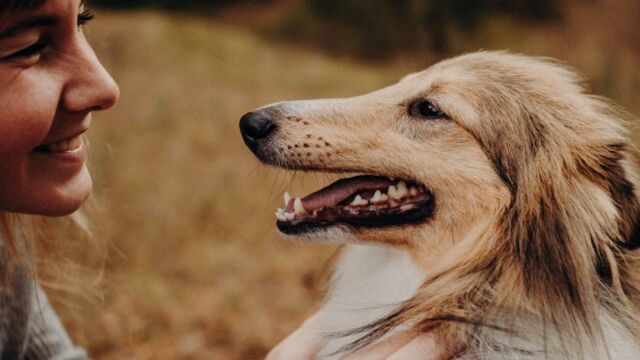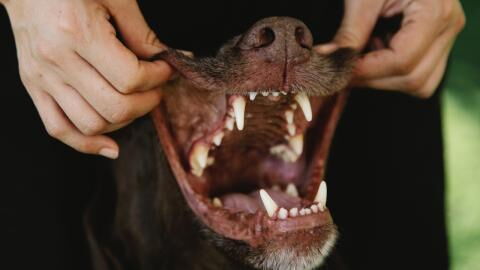We often dismiss bad dog breath as just ‘dog breath’ and ignore the issue. But did you know that the unpleasant odour can be a sign of an underlying health problem? Here is how you can remedy and prevent it.
Discover our latest podcast
Why is my dog’s breath so stinky?

Understanding the cause is the first step in treating your dog’s bad breath.
According to the American Kennel Club, the most common reason behind it is bad oral hygiene, where the build-up of plaque and tartar in your pet's mouth makes bacteria multiply. If you do not regularly brush your pooch's teeth, it can lead to periodontal disease, inflamed gums, cavities, infection, tissue destruction, tooth loss, and even pus formation.
Another common reason behind the stink is unsupervised snacking, as dogs are known for eating poop and digging into rubbish.
Diabetes causes bad dog breath with a sweet or fruity smell to it. A urine smell from your canine's mouth can be a warning sign of kidney disease. A truly foul smell, accompanied by vomiting, a lack of appetite, and a yellow tinge on the gums indicate liver disease. All these conditions require an urgent vet visit.
What can I do about the stinky smell?

After you ruled out serious conditions and stopped unsupervised snacking, Pet MD recommends continuing your dog’s bad breath-free journey with a dental exam at the vet.
If the doctor detects periodontal disease, your pooch will be prescribed routine cleaning to prevent excessive tartar formation and dental extractions.
Weekly to daily brushing with enticingly flavoured canine toothpaste and toothbrushes can be the most effective way to fight the bacteria that causes bad breath.
Introducing chewy dental treats and unflavoured dental water will mask the unpleasant odour, help to remove the plaque and promote a healthy oral environment.
The bacterial build-up can also be reduced by the special dental diets that use a larger kibble size and a coarse texture to scrape along the tooth.
My dog’s breath is fine now. How can I prevent it from turning stinky?

Prevention is the best cure. Not to have to turn away from your dog’s affection later, it is important to act early.
Brushing teeth is the foundation of your dog’s dental hygiene, and this activity can be fun and lead to quality time with your pet.
Chew toys and dental treats are other fun staples that will take care of canine teeth naturally. A quality, balanced diet, plenty of exercise and regular check-ups with a vet are a must for your dog’s overall health and wellbeing, their breath included.
Whenever in doubt, always speak to the vet.
Read more:
⋙ Feeling bored on dog walks? Test these 5 original ideas to make them fun again
⋙ 5 mind-blowing facts about your dog’s most important organ
⋙ Brushing your dog's teeth: How to make your pet fall in love with this hated task















